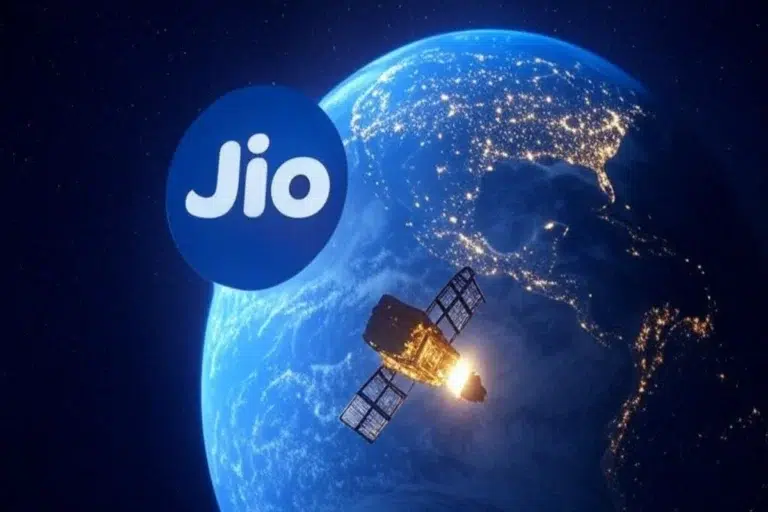In a major game-changing move for India’s telecom industry, the biggest telecom services provider in India Reliance Jio has signed an agreement with Starlink, owned by Elon Musk, to launch satellite internet in India. This was recently announced shortly after Bharti Airtel signed a similar partnership with the American space technology house, which indicates a paradigm shift in the entire scenario of how internet connectivity will eventually reach even the remotest corners of India. With Jio’s very high user reach and Starlink’s hi-tech satellite network, this association will certainly transform digital access in both urban and rural areas.
Quite strange timing because, a day ago on Tuesday, March 11, Airtel had already made headlines for its fresh deal with SpaceX, the parent company of Starlink. Airtel did not take long to spill the beans in the stock exchange-disclosed ambitious plans. Now Jio has entered the fray; this becomes clear, that the giants in telecom are racing towards satellite technology to remain on top of this ever-increasing competitive market. For millions and millions of Indians, the outcome may be that the internet gets even faster and more reliable-given that it is in a crowded city or a remote village.
Airtel’s Pioneering Move Sets the Stage
The agreement between Airtel and SpaceX was made known on March 11 and has paved the way for what looks set to be the beginning of another satellite internet revolution. According to a filing by the company to the stock exchange, the partnership will extend between Starlink services and businesses, educational institutions, and healthcare centers. The reach is really most important-it will penetrate remote and under-served areas where traditional infrastructure is struggling, bringing connectivity to as many people as possible.
An agreement between Airtel Business, the enterprise side of the telecom operator, and SpaceX will concentrate resources toward Starlink’s integration with existing networks. It amplifies the combined capabilities of Airtel underpinned by terrestrial infrastructure and globally covering Starlink low-earth-orbit satellites – registered as the largest constellation of satellites. It’s not just about demand for Airtel, it’s setting a whole new level of connectivity in India.
Jio’s Entry Signals a Telecom Power Play
Reliance Jio might shake up the entire industry with its bold confirmation through Starlink. This is the first telecommunications operator in India, which has redefined the whole industry once earlier with cheap data rates and extensive rollout of 4G service. Now as it looks toward satellite internet, Jio has opened yet another front to dominate. Though the finer details of the Jio-Starlink agreement are being kept un
der wraps, there is no uncertainty over the direction it is taking. Jio’s intention, quite clearly, is to leverage Starlink’s exceptional satellite network to increase its reach and offerings.
This makes sense, especially considering that Jio announced the news just a day after Airtel. Both competiting companies are now found in an even tighter squeeze fighting for the crown in India’s telecom space, and their partnership with SpaceX may ignite a competition to bring satellite internet across India. The scenario is a win-win for consumers: more options, better services, and lower costs fueled by rapid rollouts-spurred by the ambitions of companies-now.
A New Era of Connectivity Beckons
The subsequent agreements involving the telecom giants of India and SpaceX seem to indicate the inauguration of a new era. Starlink, with its constellation of thousands of satellites orbiting the Earth, has already demonstrated the capability to provide high-speed internet in truly hostile environments across the globe. Now, by leveraging this technology, Jio and Airtel will try to take on some of the worst connectivity challenges in India-think mountain regions, isolated villages, and disaster-prone areas where laying cables is simply not doable.
In addition to these technical possibilities, these partnerships go beyond that. A business may become competitive with” reliable internet; students in rural schools could truly access online learning; and healthcare could connect to patients in ways hardly imagined before. With Jio and Airtel envisaging ways to connect Starlink with their networks, the prospect of a digital India feels much closer. Right now, all eyes are on how these partnerships will pan out-and what it implies for the future of connectivity.




